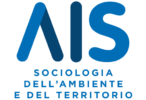Science, technology and related expertise have taken an increasingly prominent role in society. Public unease with and controversy over the
way science and technology progress and expertise is applied to address societal needs, expectations and demands have however grown
proportionally. Institutions such as the European Union have recognised this as a major question, leading to what has been sometimes depicted as a crisis of trust in science and, more recently, a crisis of rationality in addressing public issues. A number of theoretical frameworks and
approaches have been developed along the years. Though these may differ considerably as to how the origin of the problem is diagnosed and the
answer is conceived, there is a widespread agreement that any simplistic view of the interface between science and society is to be abandoned,
and that more inclusive approaches have to be worked out. As a result, there has been a vast increase in awareness, conceptual frameworks,
tools and skills in communicating science, gauging public responses and involving people in science-related policy-making. Yet, public issues
(re)emerge continually as science, innovation and industrial policies proceed, challenging the capacity to fruitfully apply scientific expertise in a socially unsettled context.
Main themes:
* Science-society interface approaches from public understanding of science to post-truth
* Participatory innovation, with special reference to Responsible Research and Innovation
* Investigating and communicating environmental risks
* Public health and trust
* Mapping techno-scientific controversies
* Expertise and public deliberation
Deadline for application 30 March 2019
For more information and applications:
https://www.unipi.it/index.
